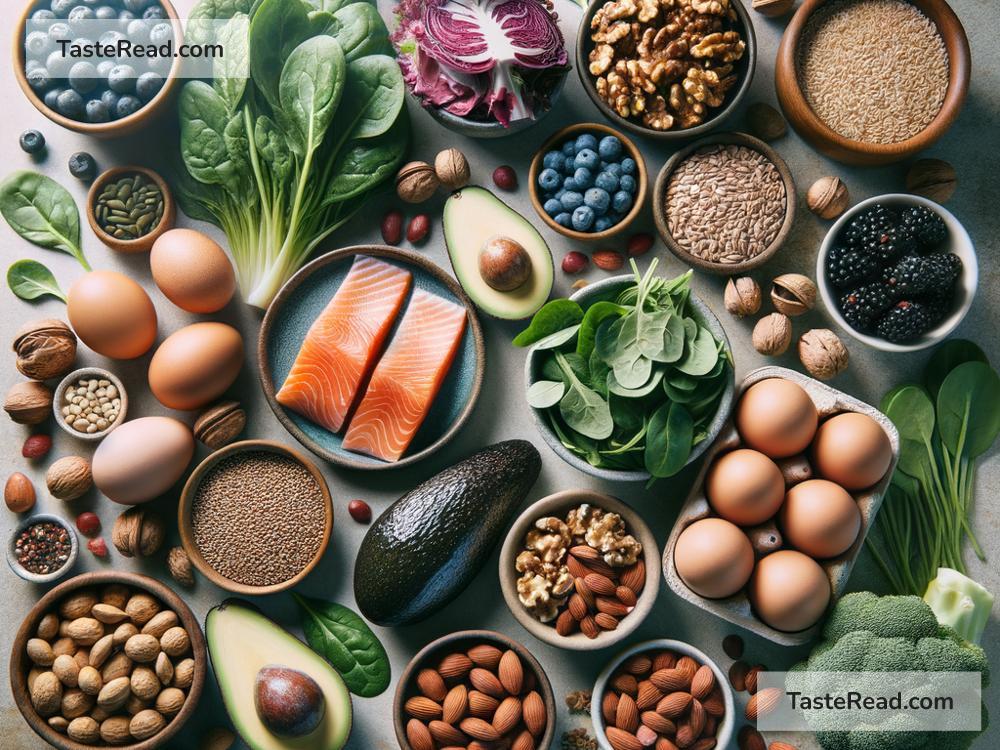Foods That Support Healthy Egg Quality: A Simple Guide
If you’re thinking about your future family or trying to conceive, you may have heard people talking about egg health. Women are born with all the eggs they’ll ever have, which means it’s important to support their quality as best as possible. Egg quality plays a big role in fertility, as it determines how healthy an egg is and its ability to lead to a successful pregnancy. Luckily, your diet can help improve egg health! In this blog, we’ll explore foods that are great for supporting healthy egg quality, all in simple language.
Why Is Egg Quality So Important?
Before diving into specific foods, let’s quickly talk about why egg quality matters. Egg quality impacts fertilization, embryo development, and implantation in the uterus. Healthy eggs are more likely to result in successful pregnancy outcomes. While age is one of the key factors that affect egg quality (it naturally declines with time), lifestyle factors like diet can help keep your eggs healthier for longer.
To produce healthy eggs, your body needs the right nutrients. These nutrients reduce inflammation, boost blood flow to the ovaries, and fight off damage caused by free radicals (unstable molecules that can cause harm to cells). That’s where food comes into play.
Best Foods for Healthy Egg Quality
Here are some foods packed with nutrients that support egg health.
1. Leafy Greens
Leafy greens like spinach, kale, and arugula are excellent for overall reproductive health. They are high in folate, a type of B vitamin that helps with cell division and DNA repair. Folate is also essential for the early development of embryos after fertilization. Additionally, leafy greens are rich in antioxidants, which protect eggs from damage caused by free radicals.
2. Avocados
Avocados are not only delicious but also very nutritious. They’re full of healthy fats, specifically monounsaturated fats, which help maintain hormone balance—a crucial factor for egg health. Healthy fats also support improved blood flow to the reproductive organs. Avocados are additionally packed with vitamin E, an antioxidant known for protecting and nourishing eggs.
3. Eggs
It may seem fitting that eggs can help with egg quality! Eggs themselves are rich in protein, choline, and other nutrients. Choline, in particular, helps with cell membrane formation and function, making it critical for healthy eggs and embryo development.
4. Berries
Berries like blueberries, raspberries, and strawberries are superfoods for your eggs. They’re loaded with antioxidants such as vitamin C and polyphenols, which fight free radicals and reduce oxidative stress on your ovarian cells. Plus, they’re delicious and easy to add to smoothies, yogurt, or cereals!
5. Nuts and Seeds
Almonds, walnuts, sunflower seeds, and flaxseeds are rich sources of omega-3 fatty acids and vitamin E. Omega-3s are essential for reducing inflammation and supporting proper hormone production. Vitamin E helps protect eggs from oxidative damage. These nuts and seeds are also a great snack if you’re trying to eat healthily.
6. Salmon
Salmon is packed with omega-3 fatty acids, which promote healthy blood flow to the ovaries and help reduce inflammation. Another benefit of eating salmon is its vitamin D content. Vitamin D plays a role in hormone regulation, and studies show that sufficient levels of vitamin D may improve fertility outcomes.
7. Whole Grains
Whole grains like quinoa, oats, and brown rice are rich in complex carbohydrates. These healthy carbs provide steady energy and help regulate blood sugar levels. Balanced blood sugar is necessary for maintaining proper hormonal levels, which are closely tied to egg quality.
8. Broccoli and Other Cruciferous Vegetables
Broccoli, cauliflower, and Brussels sprouts contain compounds like indole-3-carbinol, which help balance estrogen levels in the body. Hormonal balance is extremely important for egg health. These veggies are also full of antioxidants and fiber, both of which support reproductive wellbeing.
9. Oranges and Citrus Fruits
Citrus fruits like oranges, grapefruits, and lemons are high in vitamin C, an antioxidant that boosts egg health. Vitamin C also improves iron absorption, which is good for overall blood circulation in the body, including the ovaries.
10. Dark Chocolate
Who doesn’t love a little chocolate? Dark chocolate in moderation (at least 70% cacao) is rich in antioxidants that fight free radicals and reduce oxidative stress. It’s a sweet treat that can have amazing benefits when enjoyed sensibly.
Stay Hydrated!
In addition to eating nutrient-rich foods, don’t forget the importance of staying hydrated. Proper hydration helps improve blood flow to reproductive organs, ensuring they get the oxygen and nutrients they need to function well. Aim to drink plenty of water each day.
Foods to Avoid for Egg Quality
Just as there are foods that help egg health, there are some to limit or avoid. Processed foods, sugary snacks, trans fats, and alcohol can negatively impact egg quality over time. Stick to whole and natural options as much as possible.
A Healthy Lifestyle Matters Too
Aside from your diet, other lifestyle factors like stress reduction, adequate sleep, regular exercise, and not smoking play an important role in egg quality. Nutrition alone can’t fix everything, but when combined with a healthy lifestyle, it can make a big difference.
Final Thoughts
The quality of your eggs is influenced by many factors, but eating the right foods can certainly help support their health. Incorporate leafy greens, avocados, salmon, nuts, berries, and other fertility-friendly foods into your diet, and try to stay away from processed and sugary meals. With a balanced diet and a healthy lifestyle, you’re giving your eggs the best chance to thrive! Remember, small changes can lead to big results over time.
Whether you’re trying to conceive now or just thinking ahead, your nutrition matters. Start fueling your body with these powerful foods today!


